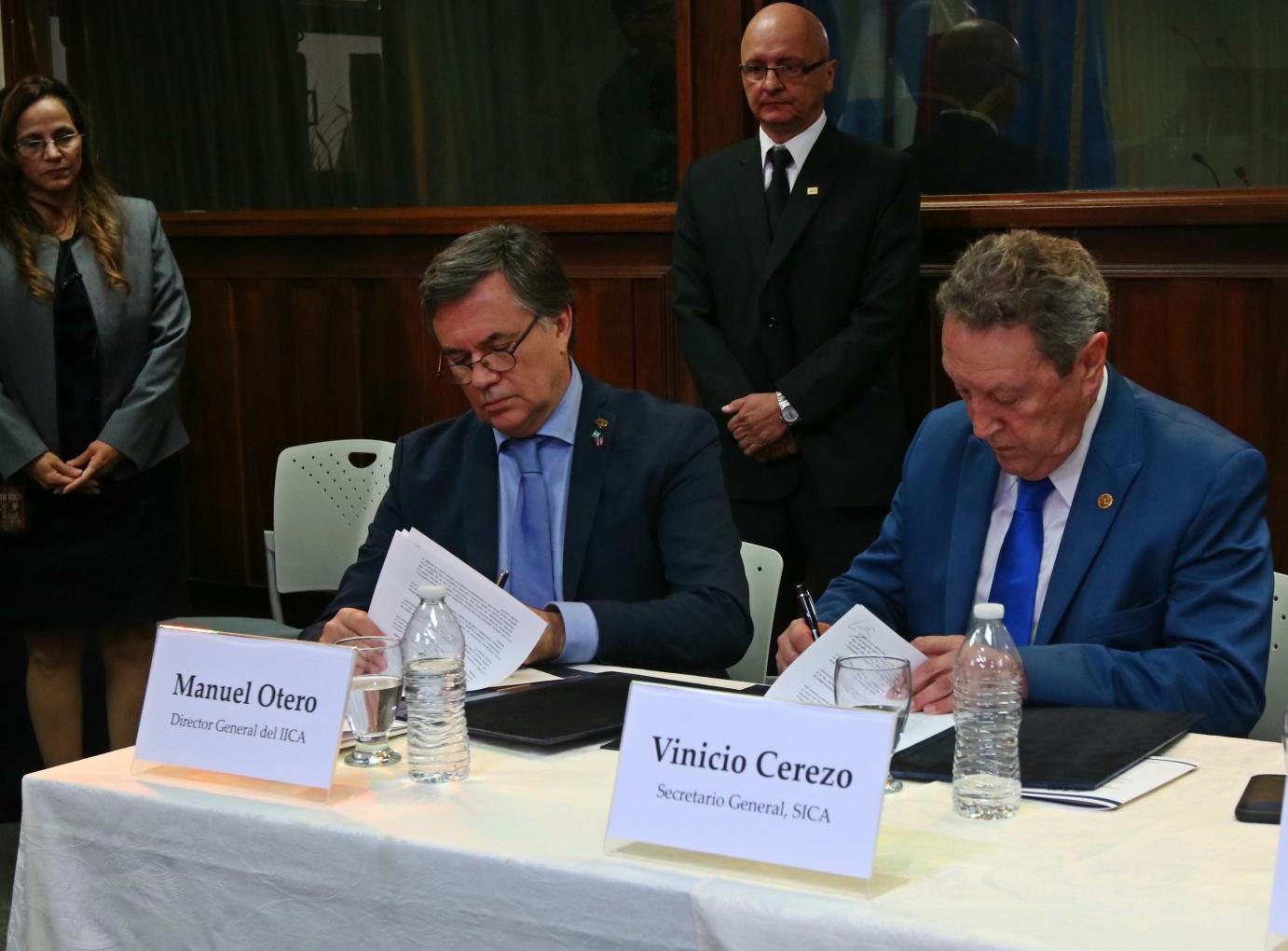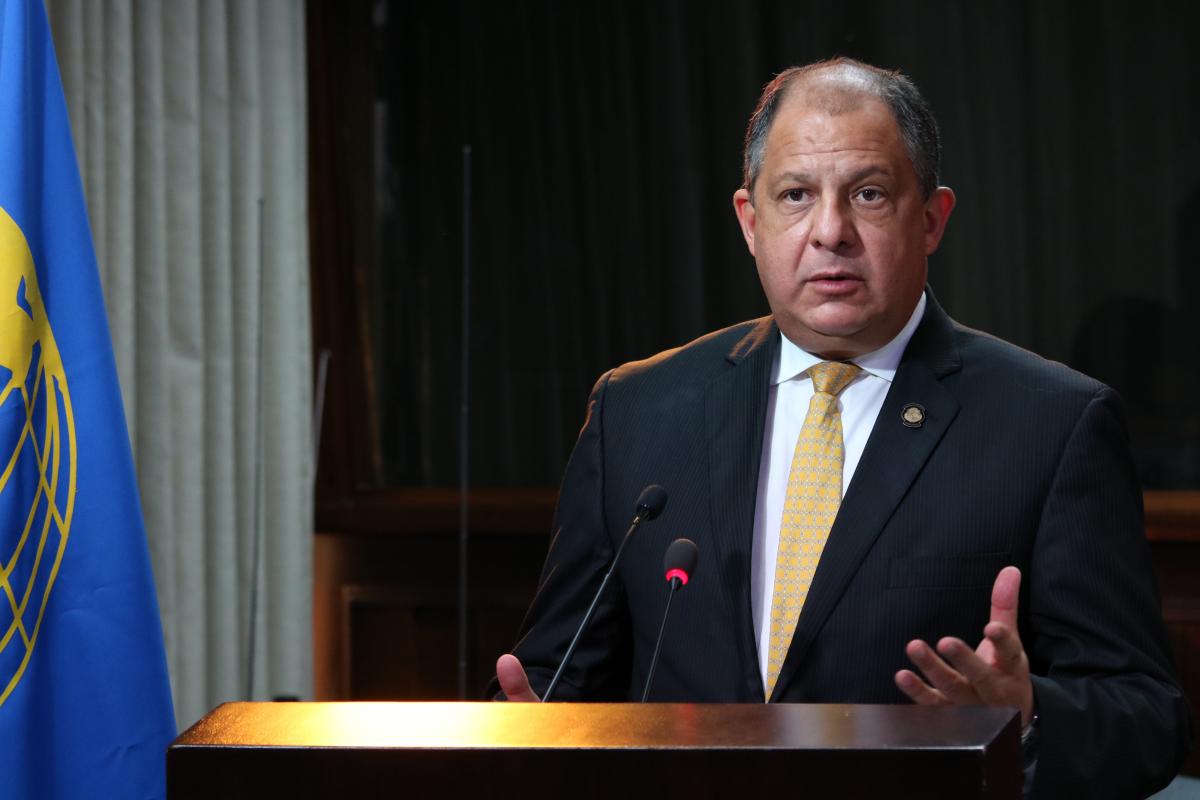Both organizations will work toward a sustainable agriculture at the service of people.

San José, January 16, 2018 (IICA). The Inter-American Institute for Cooperation on Agriculture (IICA) and the Central American Integration System (SICA) have signed the IICA-SICA Strategic Innovation Partnership 2018-2022, an agreement aimed at promoting a new model of development for agriculture and rurality based on an expanded vision at the service of people. The partnership seeks to facilitate security, employment and business enterprises in the context of strengthening the Central American integration process.
The agreement was signed on January 15 at IICA Headquarters during the Investiture Ceremony for the new Director General of IICA, Manuel Otero, for the period 2018-2022. The event was attended by the Secretary General of the Central American Integration System (SICA), Marco Vinicio Cerezo, and the President of Costa Rica, Luis Guillermo Solís.
This partnership is the direct outcome of an historic process, whose most recent milestone is the Esquipulas Peace Accords signed in 1987, and contains a series of declarations agreed between both organizations, under a humanist vision. It stipulates that the integration and international cooperation systems should be geared toward improving the living conditions of the region’s population and adheres to the guidelines of the “Laudato Si” Encyclical in order to help achieve the 17 Sustainable Development Goals in the member countries of SICA.
The strategic actions included in the agreement prioritize sustainable development to help tackle and overcome the serious effects of climate change that are adversely affecting Central America’s rural areas and its agriculture. It also promotes capacity building and the development of rural communities, especially of women and young people.

According to Otero, it is necessary to be closer to the people and their problems. “We should be concerned about what is happening with the levels of exclusion in the Americas. Technical cooperation projects must seek to contribute to development, to improve the quality of life of those who live there. That is the purpose of the agreement,” he said.
For his part, Cerezo emphasized that if we wish to transform the region, we must strive to overcome social inequality and implement measures to resist the effects of climate change. “This alliance will mark a before and an after, and we will seek additional partnerships to accomplish our objectives in pursuit of the development of our agriculture,” he added.
President Solís also referred to the signing of the agreement and pointed out that Central America has a responsibility to its rural areas. “This important document that has been signed today is an expression of that commitment that we, the Member States of SICA, must continue to pursue,” he said.
“Women, young people, indigenous groups and Afro-descendant communities, many of whom are zealous guardians of our patrimony, have been unfairly excluded from development due to the lack of national and regional policies. It is up to the governments, the executive branches, to support such policies and make them a central part of our reality, as an opportunity for human development,” he concluded.
SICA was established in 1991 and comprises Belize, Costa Rica, El Salvador, Guatemala, Honduras, Nicaragua, Panama and the Dominican Republic.
More information: miguel.arvelo@iica.int










